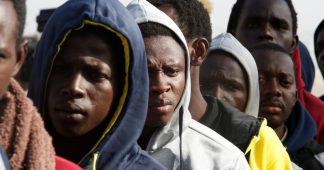By: Darcy Borrero Batista
Source: Granma
The Dawn News
May 25, 2017
Although the mainstream media focuses daily on negative news stories in Africa, there is another reality to the continent, which today, May 25, is celebrating its day, confident of its decisive role in international affairs. Today Africa can not be ignored or underestimated.
Fifty-four years have passed since the founding of the Organization of African Unity (OAU) in 1963, giving rise to Africa Day. Much has changed in the continent which has since then consolidated itself as a strategic bloc.
The OAU – today the African Union (AU) – has brought together the 55 nations of the region, including the Sahrawi Arab Democratic Republic and the youngest country of the world, South Sudan, under its principles of respect for the sovereignty and independence of each state. After a long period of voluntary absence, Morocco returned to the organization during the last AU Summit in February.
Thus, the third largest continent in the world, with 20.4% of the world’s total land, is experiencing an unprecedented moment of cohesion, and is committed to the defense and exploitation of its natural resources for the benefit of its peoples. According to the UN Concise Report on the World Population Situation 2014, the world’s highest population growth rate will be concentrated in Africa: “by 2050, Africa will be growing more than 6 times as fast as Latin America and the Caribbean and more than 15 times as fast as Asia,” the report reads.
The growing position of Africa as a strategic area is linked, in addition to its natural and mining wealth, to the fact that by 2050, it will see more than 80% of the world population increase, while Asia will represent just 12%. In addition, between 1994 and 2014, this was the continent where there was “the largest absolute change in under-5 mortality… with a decline from 168 to 101 deaths per 1,000 live births.”
***
In Cuba, where there is a notable African heritage, a proactive foreign policy toward this region has been followed since the triumph of the Revolution. The island is proud to belong to the African Diaspora, which the AU refers to as the continent’s “sixth region.”
Comandante en Jefe Fidel Castro took the decision early on to send both civilian and military aid, as well as Cuban soldiers, to support the national liberation movements of several countries including Angola, Ethiopia and Congo, “in fulfillment of our sacred internationalist duty.” Since then, Cuba has reiterated its readiness to strengthen the relations of solidarity and cooperation with African nations, as demonstrated by the thousands of Cuban collaborators that today contribute to the socio-economic development of the continent.
Cuba’s solidarity with Africa not only stems from a sense of duty, but from the African blood that was shed in the island’s pro-independence movements since the nineteenth century, as well as the cultural legacy of Africans in Cuba. In this sense, the authorities of the island have reiterated their support for the implementation of the African Union’s Agenda 2063, rooted in Pan-Africanism and African Renaissance.
***
The good news in Africa, although rarely reported in the mainstream media, includes many advances. Several African countries have recently established free or compulsory primary education. Life expectancy over the past 20 years in the region has increased by 6.5 years, and the least developed countries made significant progress, with an 8.9-year life expectancy increase in the same period, according to the UN report.
Sub-Saharan Africa has three countries — Rwanda (6), Namibia (16) and South Africa (17) — which rank among the top 20 countries in the world with the lowest gender gap in health, education, economic opportunities and political representation, according to the World Economic Forum’s Global Gender Gap Report 2015.
In 2011, it was revealed that Ghana — with strong political stability, rising social and health indices, and oil — was the second-fastest growing economy in the world after Qatar.
Another notable example is Seychelles, a small island developing state whose current President Danny Foure studied in Cuba. “In the period from independence in 1976 to 2003, the country made remarkable social and economic progress. The economy grew consistently and all social and economic indicators demonstrated regular advances. As a result, by 2003 Seychelles differed from the majority of countries benefiting from UNDP (United Nations Development Programme) support,” read the 2009 Assessment of Development Results: Evaluation of UNDP Contribution on the country.
It would appear that this reality is not of interest to mainstream media outlets. One could argue that hegemonic powers prefer to obscure African progress. This would not be surprising, marking just another in a long line of steps taken against the continent, which saw so many of its peoples forced into slavery to benefit world powers, while the burden of underdevelopment befell their own nations, robbed of their natural riches.
However, today offers us an opportunity to congratulate Africa on its day, and to commit ourselves to its reconstruction.











